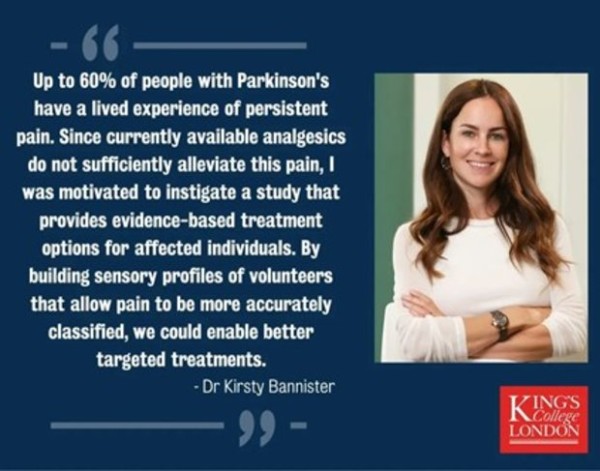30 March 2022
Brain Awareness Week is the global campaign to foster public enthusiasm and support for brain science. As part of this, the School of Neuroscience within the Institute of Psychiatry, Psychology and Neuroscience, King’s College London (KCL) shone a light on some of the brilliant researchers and their great work to improve patient outcomes.
Prof Mark Richardson, Joint Director of King’s Health Partners Neurosciences and Head of School, Neurosciences, KCL, said:
These profiles show the incredible range of research being conducted in the School of Neuroscience. Our School is the second largest academic neuroscience department in the UK and undertakes research across the life course from earliest embryonic development to late-life neurodegeneration, and neuro-regeneration after injury. Working alongside our clinical partners in King’s Health Partners we aim to drive the translation of our research into improved outcomes for our patients and communities.
Dr Kirsty Bannister, Senior Lecturer at Wolfson Centre for Age Related Diseases (CARD), shares her team's motivation to study persistent pain in Parkinson's in the hope to provide targeted treatments in the future:
Yaz Buhidma, postgraduate student at Wolfson CARD, discusses his motivation to research pain in Parkinson’s:

Dr Yi Min Wan, Clinical Research Fellow at Basic and Clinical Neuroscience, discusses her collaborative international research to study clinical psychosis and apathy in Parkinson’s.
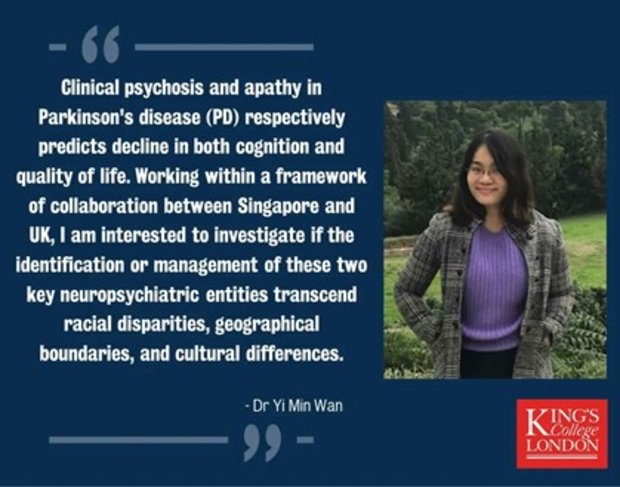
Dr Miriam Vignando, Research Associate from Neuroimaging, KCL, talks about her work to understand visual hallucinations in Parkinson’s:
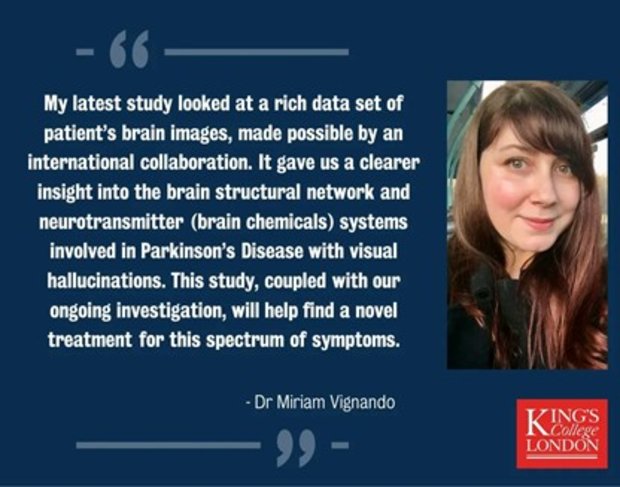
Amy Shakeshaft, postgraduate student in Basic and Clinical Neuroscience, discusses her work on the sex-specific factors linked to prognosis in juvenile myoclonic epilepsy. Read the news story https://buff.ly/3J4kguD:
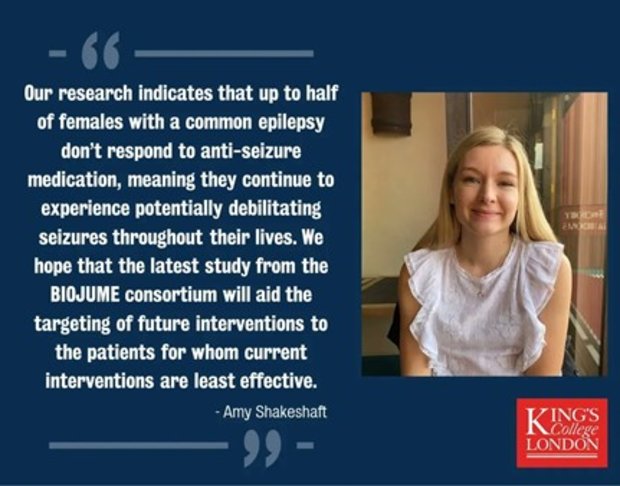
Prof Burrone, Centre for Developmental Neurobiology (CDN), explains how his latest findings on Chandelier cells can contribute to a greater understanding of diseases such as epilepsy and schizophrenia:
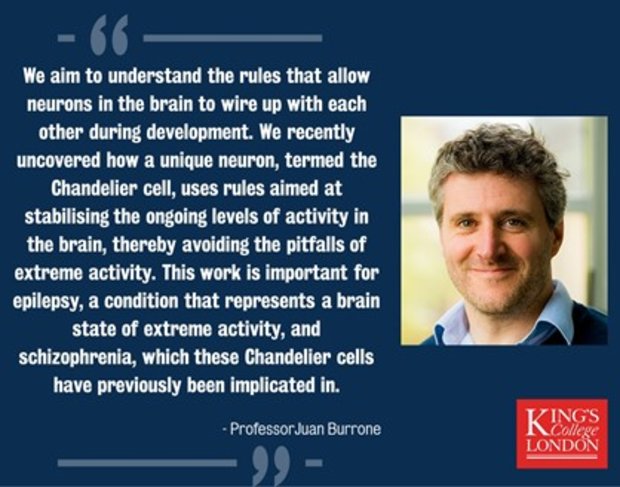
Andrea Biondi, postgraduate student at Richardson Lab, explains how EEG@HOME technology can help people with epilepsy manager their condition and provide information to their doctors:
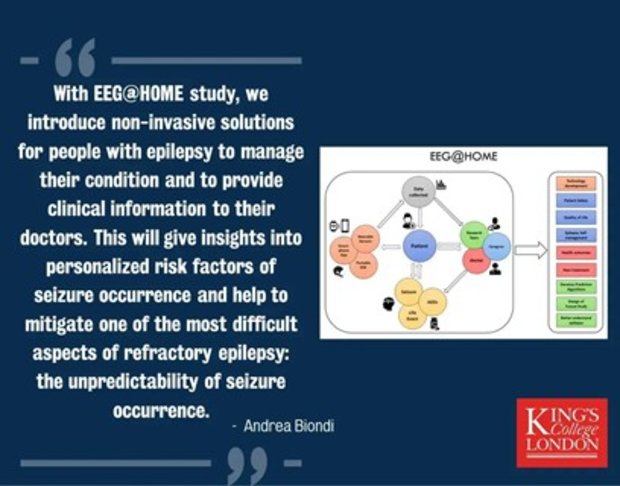
Dr Philippa Warren, Sir Henry Dale Fellow at Wolfson CARD, talks about her research on respiratory dysfunction following spinal cord injury:
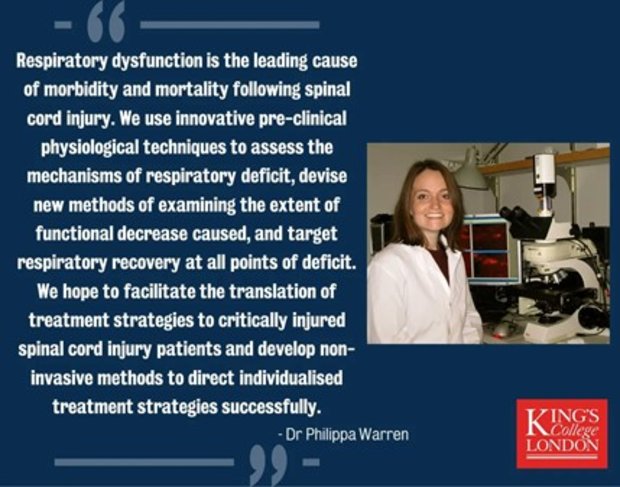
Dr David Andersson, Reader at Wolfson CARD, discusses the significance of his latest findings in fibromyalgia. Read the news story https://buff.ly/3HUfZZq:
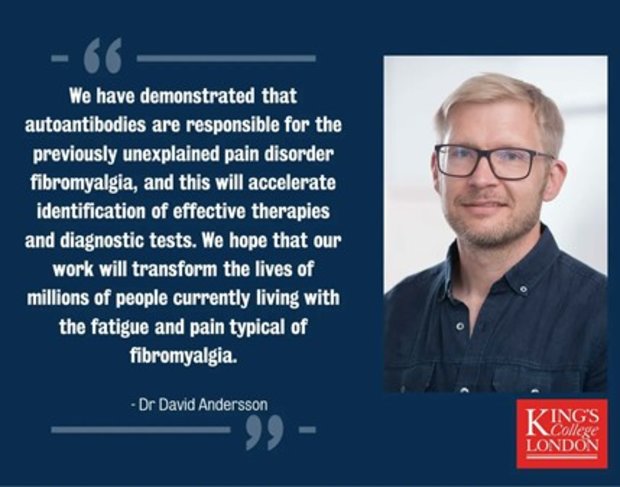
Dr Ottavia Dipasquale, Research Associate at Neuroimaging, KCL, discusses the importance of neuroimaging to understand the complexity of brain disorders:
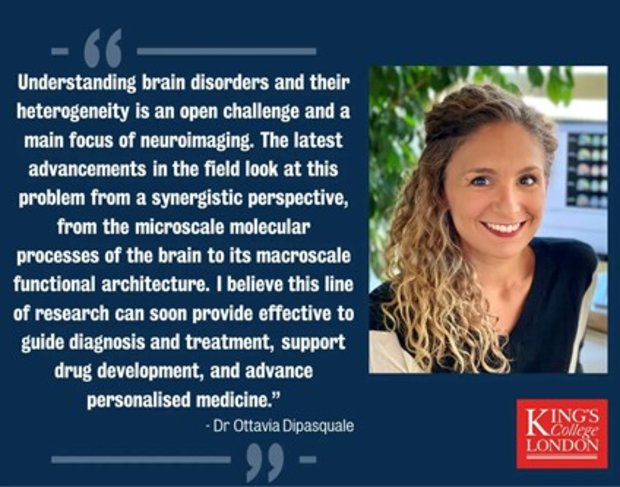
Dr Ahmad Al Khleifat, Research Fellow at Basic and Clinical Neuroscience, discusses his research on big data in Motor Neurone Disease:
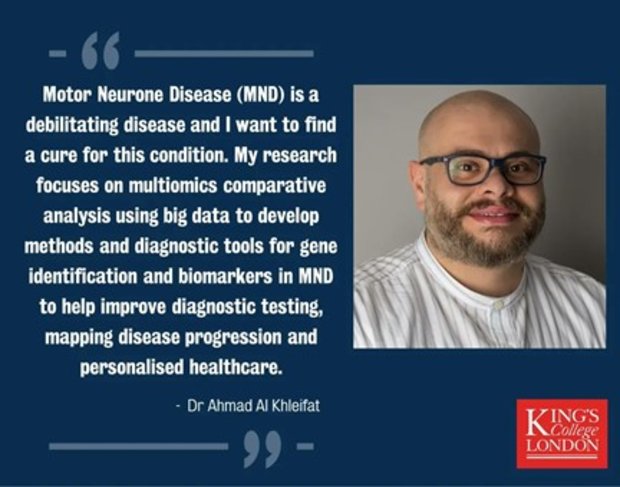
Laura, a postgraduate student in Ruepp Lab and Vance Lab at Basic and Clinical Neuroscience, KCL, discusses her work in RNA-binding proteins in Amyotrophic Lateral Sclerosis.
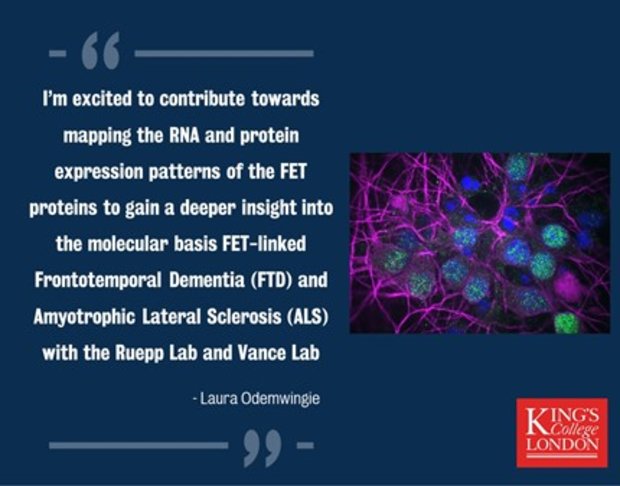
Prof Corrine Houart, Deputy Head of Developmental Neurobiology at CDN, discussed her work on splicing factor SFPQ in Amyotrophic Lateral Sclerosis:
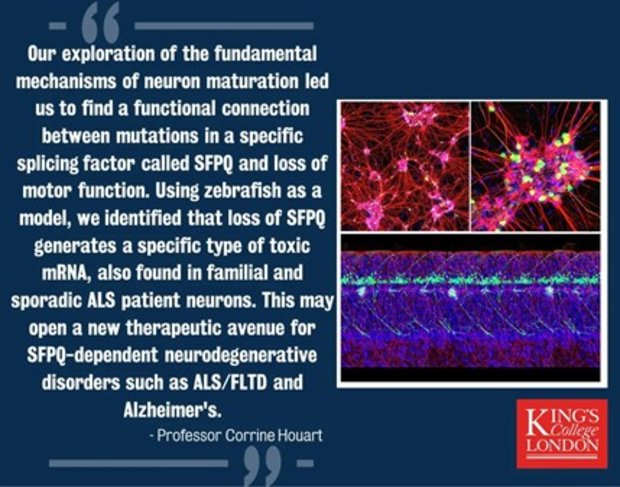
Dr Emma Clayton, Research Fellow at UK Dementia Research Institute and Basic and Clinical Neurosciences, KCL, talks about the role of synapse in Frontotemporal Dementia and Amyotrophic Lateral Sclerosis:
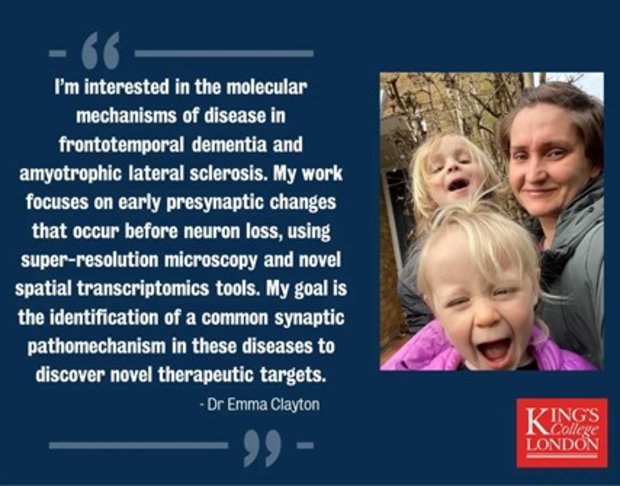
Dr Maria Jimenez-Sanchez, MRC Career Development Fellow at Basic and Clinical Neuroscience, works on the role of glial cells in neurodegenerative diseases such as Alzheimer’s:
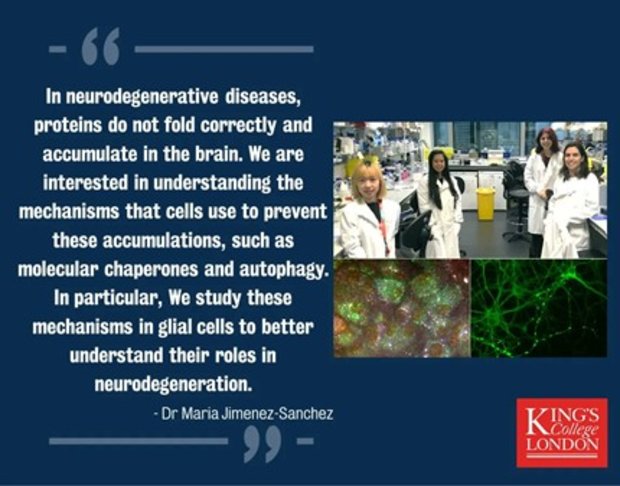
Dr Eugene Kim, MR Physicist Biomarker Research and Imaging for Neuroscience at Neuroimaging, KCL, talks about a new imaging method to visualise amyloid plaques in Alzheimer’s, made possible with the support of the Alzheimer’s Society:
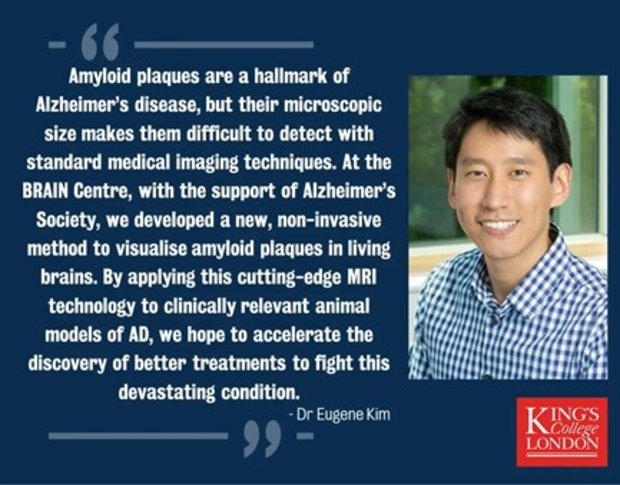
Jodi Parslow, postgraduate research student at Basic and Clinical Neuroscience discusses her hope for an interdisciplinary approach in Alzheimer’s research.
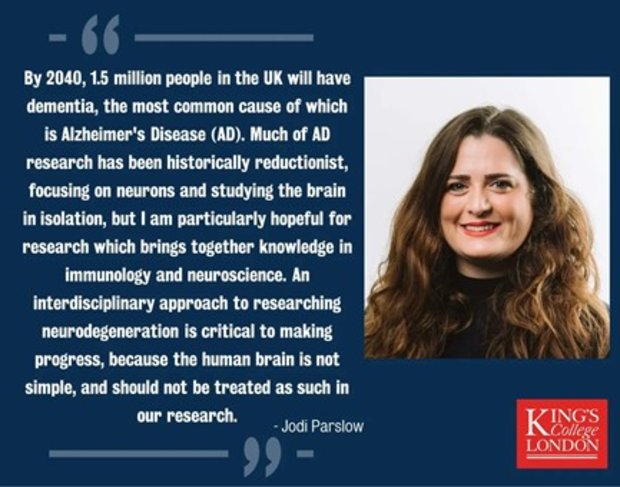
Suji Lee, postgraduate research student in Basic and Clinical Neuroscience, talks about her motivation to study the mechanism of amyloid-beta in Alzheimer’s:
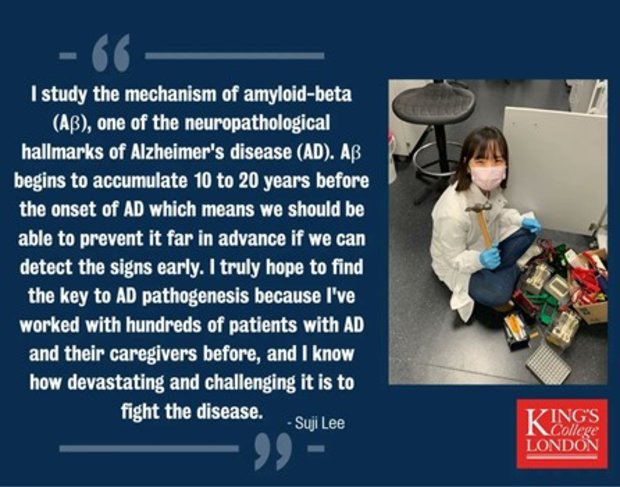
Dr Laura Andreae, Senior Lecturer at CDN, discusses her latest finding on the role of Chd8 gene in #autism. Read the paper https://
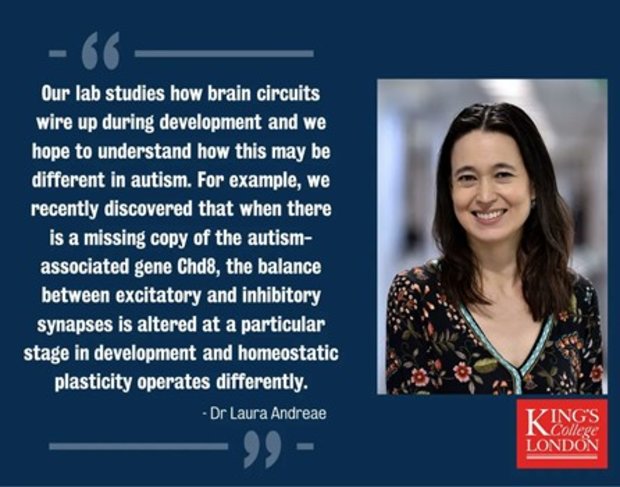
Dr Adil Khan, Sir Henry Dale Research Fellow at CDN, talks about his work in the neural circuits of cognition:
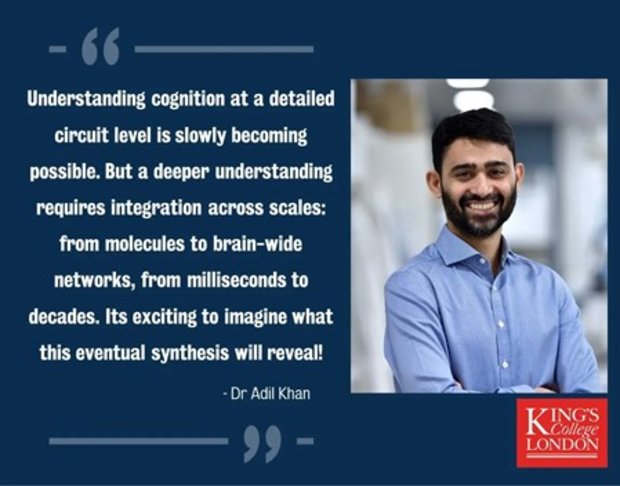
Dr Rosalyn Moran, Reader of Theoretical Neurobiology at NeuroImaging, KCL, discusses her work in schizophrenia:
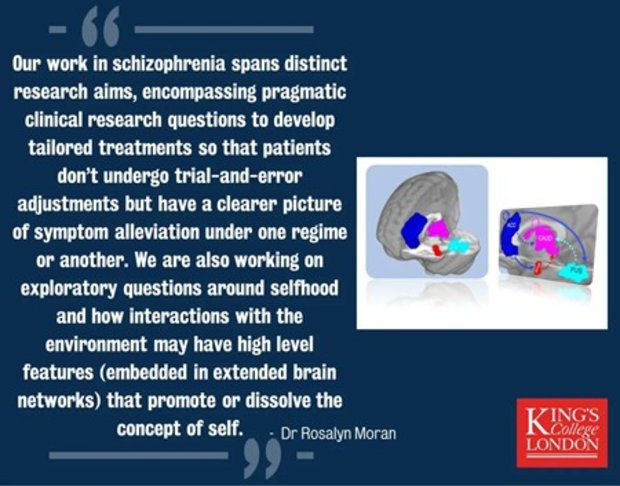
Liked this article? Find out how KHP Neurosciences is bringing together cutting-edge research, education, and clinical practice to improve care for patients.
